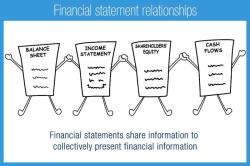What to expect during credit counseling?
Credit counseling is a financial service provided by nonprofit organizations to help individuals and families manage their debts and improve their overall financial health. When you engage in credit counseling, here's what you can typically expect and how the process generally works:
1. Initial Consultation:
- The first step is to schedule an initial consultation with a certified credit counselor. This consultation can often be done over the phone, in person, or even online, depending on the counseling agency.
2. Financial Assessment:
- During the initial consultation, the credit counselor will assess your financial situation. This includes reviewing your income, expenses, debts, assets, and financial goals. They will want to get a complete picture of your financial standing.
3. Budget Analysis:
- The credit counselor will help you create a detailed budget based on your income and expenses. They will identify areas where you can potentially cut costs and improve your budget management.
4. Debt Evaluation:
- If you have debt issues, the credit counselor will analyze your debts, including credit cards, loans, and other obligations. They will discuss the various options available for debt management and debt repayment.
5. Debt Management Plan (DMP):
- If appropriate, the credit counselor may recommend a Debt Management Plan (DMP). This is a structured repayment plan that combines your unsecured debts (like credit card debt) into one monthly payment, often with reduced interest rates and fees negotiated by the counseling agency. You make one payment to the counseling agency, which then distributes the funds to your creditors.
6. Education and Guidance:
- Credit counseling involves financial education and guidance. The counselor will provide you with tools and strategies to improve your financial literacy and make informed decisions about money management, debt, and credit.
7. Customized Recommendations:
- The credit counselor will tailor their recommendations to your unique financial situation and goals. They may provide specific advice on debt repayment strategies, improving credit scores, and building a stronger financial foundation.
8. Credit Report Review:
- The counselor may review your credit report with you to identify inaccuracies or negative items that need attention. They can help you understand how to dispute errors and take steps to improve your credit history.
9. Follow-Up and Support:
- Credit counseling is not a one-time event. The counselor will offer ongoing support and assistance as you work toward your financial goals. Regular check-ins and follow-up sessions may be part of the process.
10. Fees and Costs:- Many nonprofit credit counseling agencies provide their services for free or at a low cost. They are funded by grants and contributions. If there are fees involved, they should be disclosed upfront.
11. Privacy and Confidentiality:- Credit counseling agencies are bound by strict privacy and confidentiality standards. Your financial information and discussions with the counselor are typically kept confidential.
Keep in mind that the specifics of credit counseling can vary depending on the agency you choose and your individual financial circumstances. It's essential to work with a reputable and accredited credit counseling agency to ensure that you receive sound financial advice and assistance. Accredited agencies often have certifications from organizations like the National Foundation for Credit Counseling (NFCC) or the Financial Counseling Association of America (FCAA).













